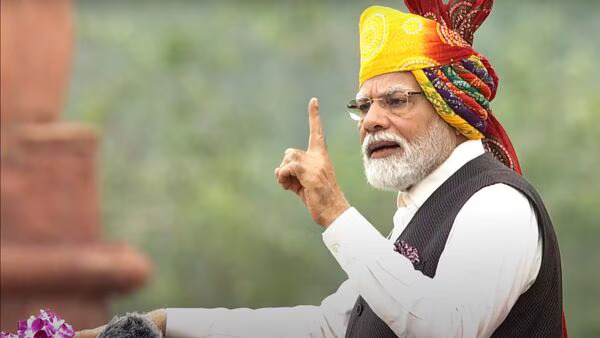Priyanshu
In a significant legal and political development, Prime Minister Narendra Modi, during his 78th Independence Day speech, underscored the importance of a ‘Secular Civil Code,’ advocating for uniformity in personal laws across all communities. This push for a secular civil code aims to replace the current communal civil code, which governs different religious groups under separate legal frameworks, with a uniform set of laws applicable to all citizens irrespective of their religion.
The concept of a Uniform Civil Code (UCC) has been a subject of debate in India for decades. It is enshrined in Article 44 of the Indian Constitution as a Directive Principle of State Policy, urging the state to endeavor to secure a UCC for its citizens. However, its implementation has been politically sensitive, given the country’s diverse religious fabric.
PM Modi’s advocacy for a ‘Secular Civil Code’ is seen as a strategic move, emphasizing national unity and equality before the law. It resonates with the broader principle of One Nation, One Law,’ aimed at eliminating legal inconsistencies that arise from different personal laws for different communities. PM Modi’s speech highlighted the need to bridge divisions within society and create a more inclusive legal framework that upholds the principles of secularism enshrined in the Constitution.
The Prime Minister’s call for a ‘Secular Civil Code’ is also viewed as a calculated political strategy, positioning the ruling party as a champion of reform and modernity while challenging the opposition parties to clarify their stance on this contentious issue. By advocating for UCC, the Government seeks to frame the opposition as resistant to progressive legal reforms, thereby appealing to voters who favor legal uniformity and equality.
While the idea of a ‘Secular Civil Code’ is compelling, its implementation poses significant legal challenges as theIndian judiciary has previously highlighted the complexities involved in creating a uniform code, considering the deep-rooted religious and cultural differences in the country. The Supreme Court, in several judgments, has expressed the need for a UCC but has also acknowledged the sensitivity of the matter.
If pursued, the government will need to engage in extensive consultations with various stakeholders, including religious groups, legal experts, and civil society, to draft a code that respects India’s pluralistic society while ensuring legal equality.
PM Narendra Modi’s push for a ‘Secular Civil Code’ marks a pivotal moment in India’s legal landscape, with potential far-reaching implications for the country’s legal and social fabric. As the debate unfolds, legal professionals and scholars will closely monitor the developments, analyzing the legal intricacies and potential impact on India’s constitutional framework. Whether this initiative will materialize into concrete legal reforms remains to be seen, but it undoubtedly sets the stage for a renewed discussion on the role of secularism and uniformity in Indian law.

